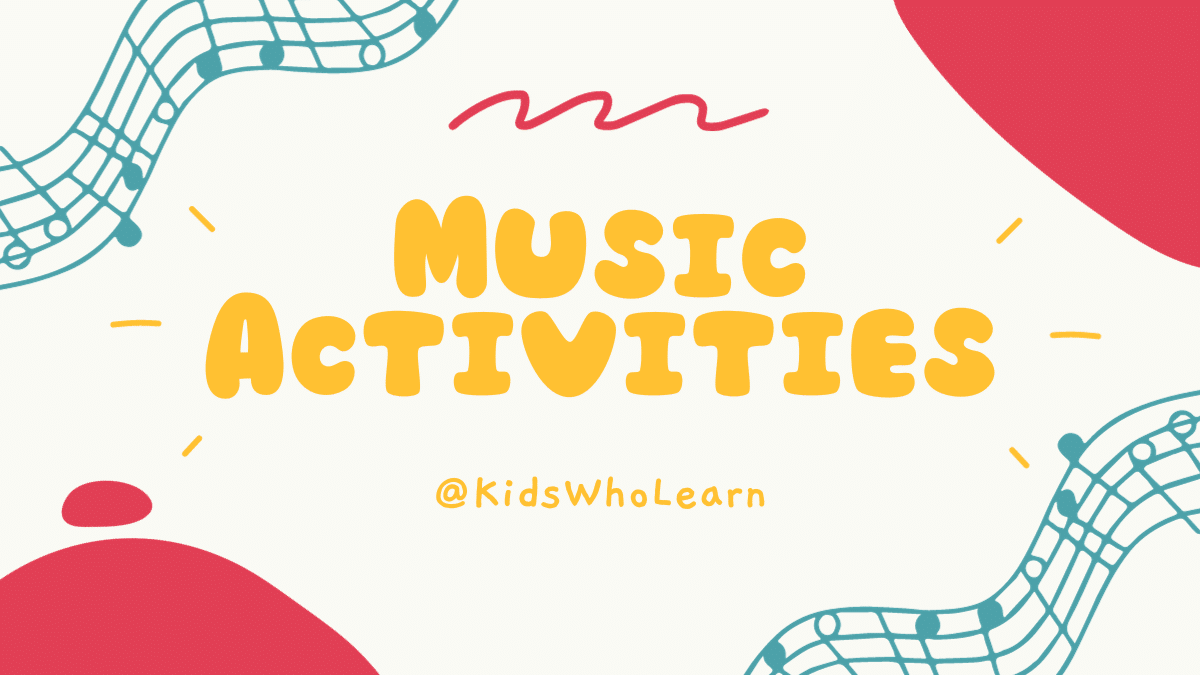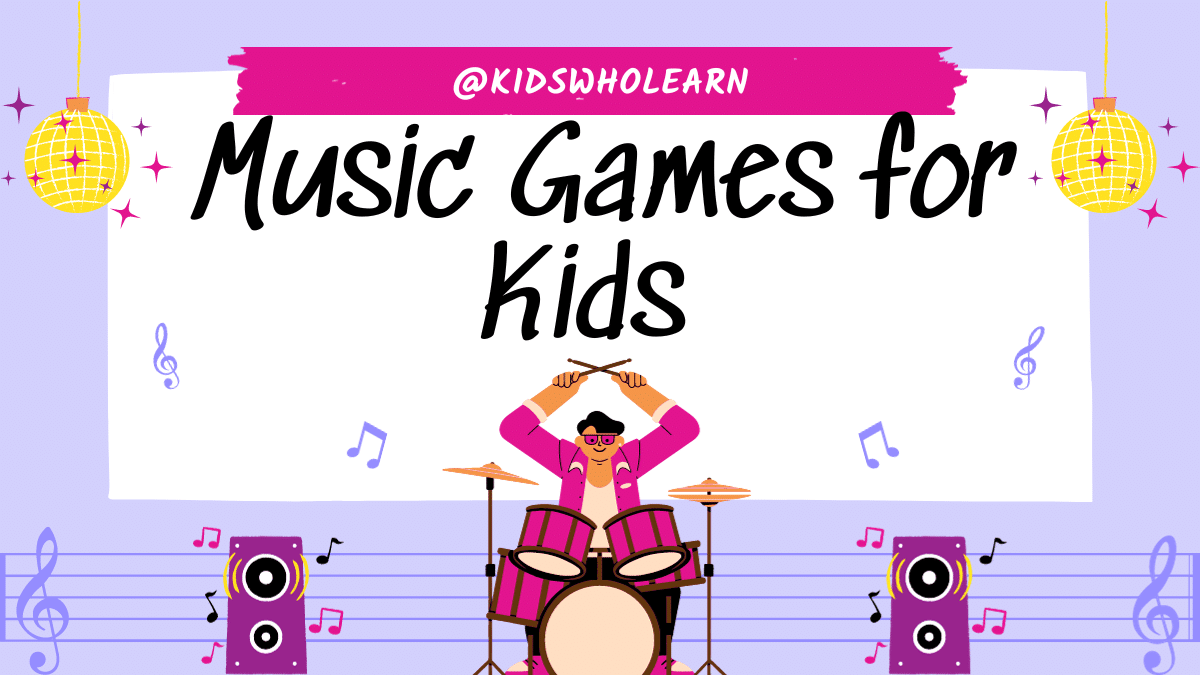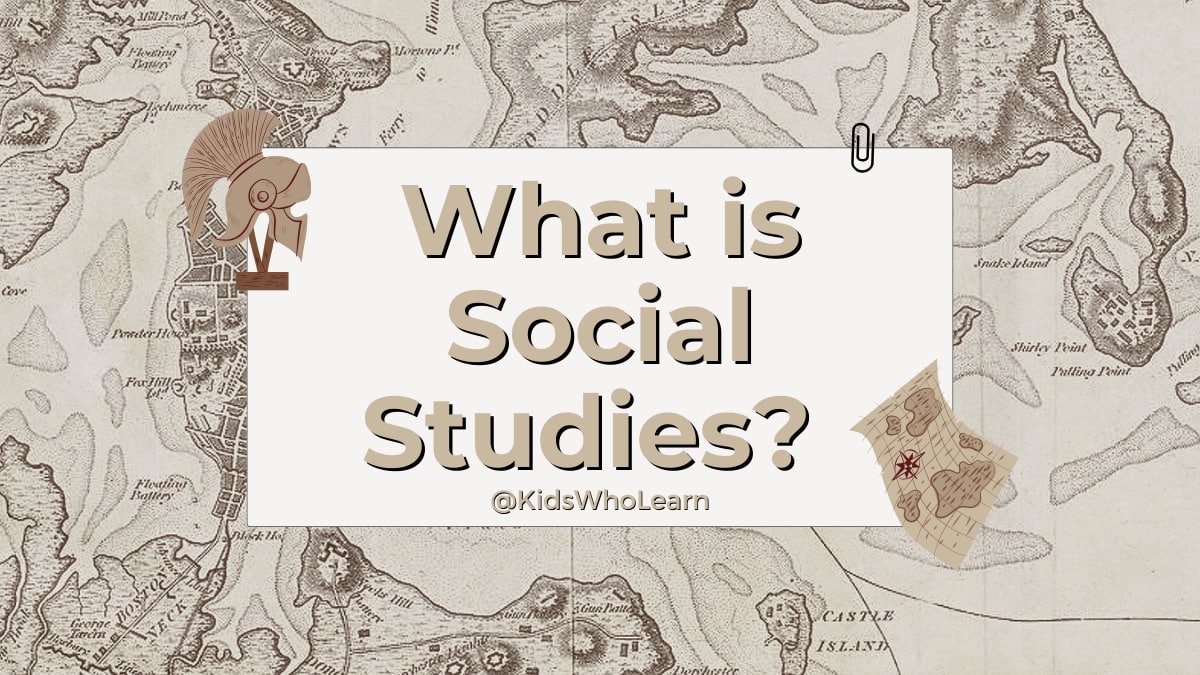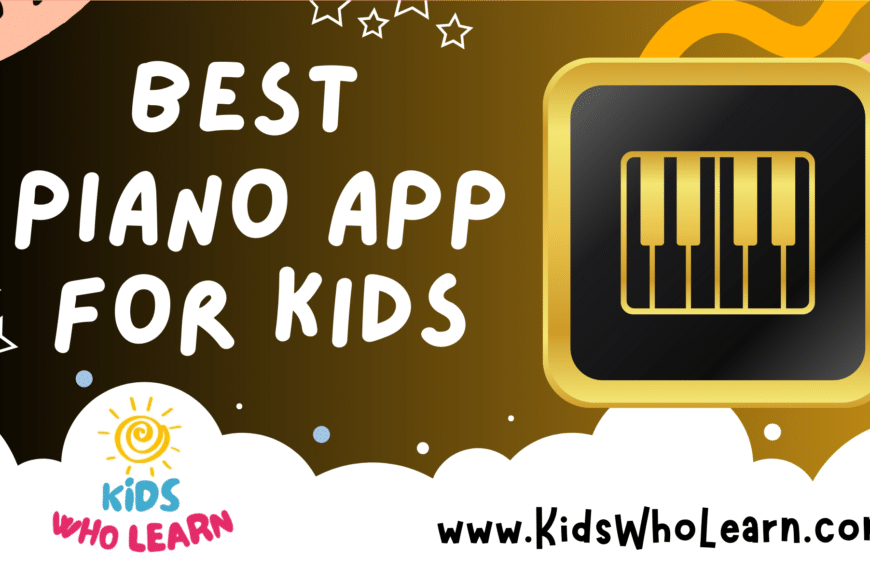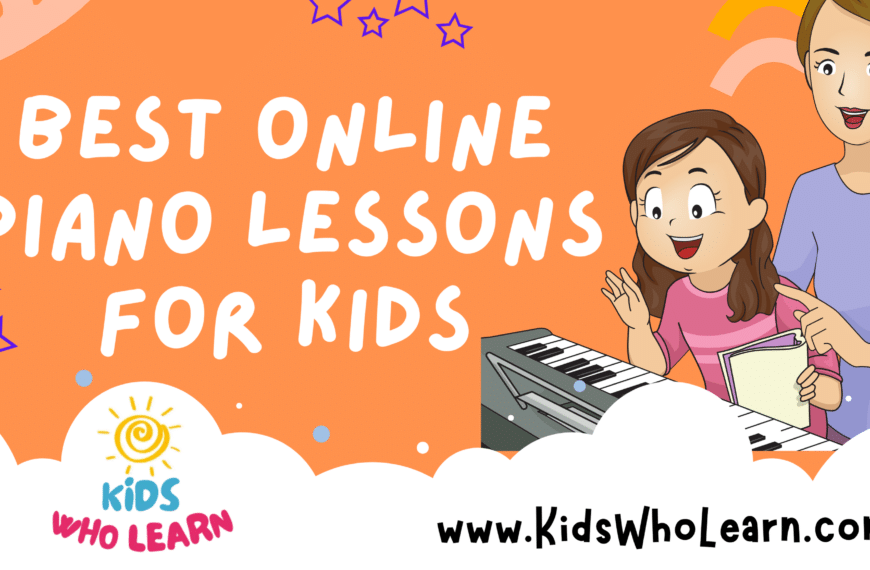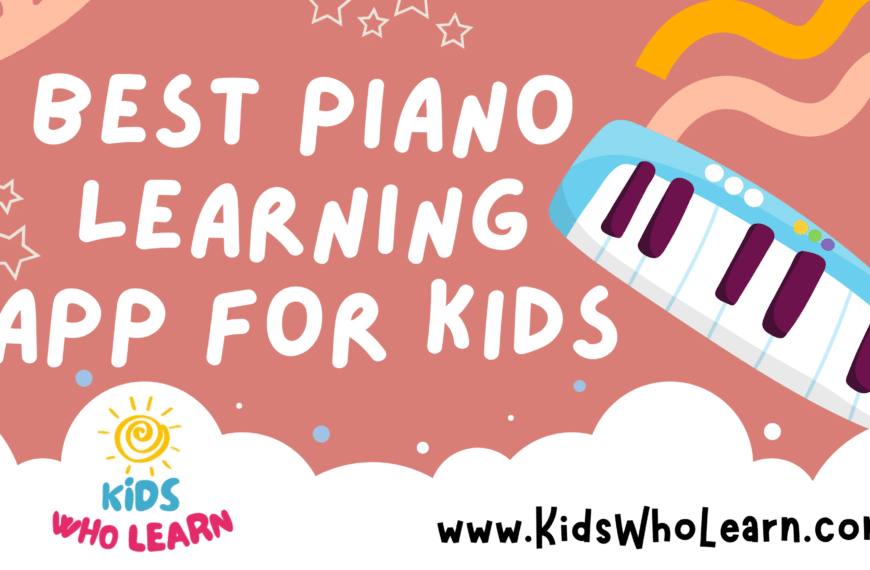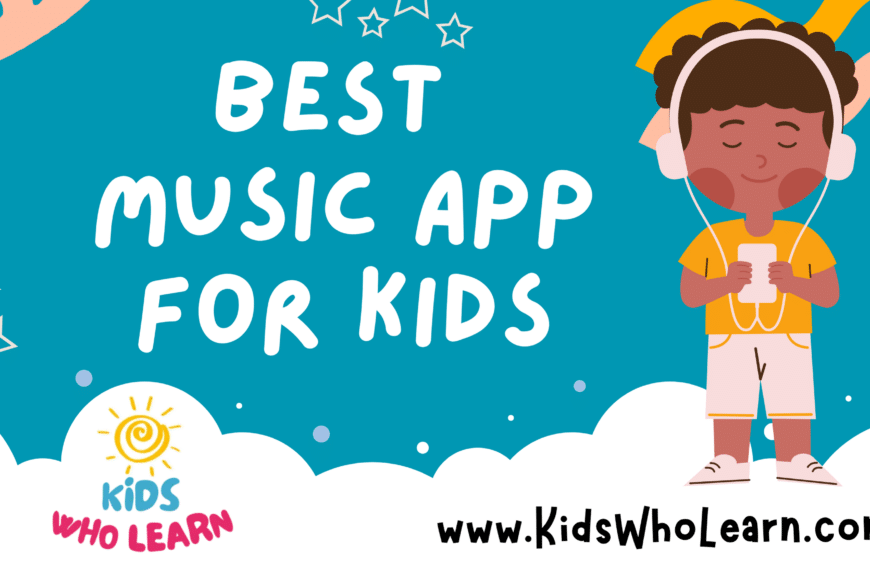Are you looking for fun and engaging ways to introduce your child to the world of music? Music activities for kids are a great way to help your child develop a love and appreciation for music while also promoting their cognitive and motor skills. Whether your child is a budding musician or simply enjoys singing and dancing, there are a variety of music activities that can keep them entertained and learning.
One popular music activity for kids is learning to play an instrument. Many music schools offer beginner classes for children, or you can purchase a child-sized instrument for your child to practice at home. Another option is to introduce your child to different types of instruments through hands-on exploration and experimentation. You can take your child to a music store or museum to try out different instruments and learn about their unique sounds and histories.
Understanding the Importance of Music for Kids
Music is an essential part of our lives, and it can play a significant role in the development of children. Exposure to music from an early age can have many benefits for kids, including cognitive, social, and emotional development.
At a young age, children are like sponges, and they absorb everything around them. Music can stimulate their brains and help them develop language and communication skills. Listening to music with lyrics can help children learn new words and phrases, improve their memory, and develop their listening skills.
Playing musical instruments can also have a positive impact on children’s cognitive development. Learning to play an instrument requires discipline, focus, and patience, all of which are essential skills for success in life. It can also improve their hand-eye coordination and fine motor skills.
In addition to cognitive development, music can also help children develop socially and emotionally. Singing and playing music with others can improve their social skills and help them build friendships. It can also help them express their emotions and improve their mood.
Overall, music is an excellent activity for kids, and it can have many benefits for their development. Whether it’s listening to music, singing, or playing an instrument, incorporating music into your child’s life can help them become well-rounded individuals.
Exploring Different Music Genres
Introducing your kids to different music genres can be a fun and educational experience. It can help them develop a deeper appreciation for music and broaden their musical horizons. Here are some genres you can explore with your kids:
Classical Music
Classical music is a great genre to introduce to kids because it’s timeless and has a rich history. It can also be very relaxing and calming. Here are some ways to introduce classical music to your kids:
- Attend a classical music concert or performance.
- Listen to classical music at home or in the car.
- Watch a movie or TV show with a classical music soundtrack.
- Play classical music while doing homework or studying.
Pop Music
Pop music is a genre that many kids are already familiar with. It’s upbeat, catchy, and fun to dance to. Here are some ways to introduce pop music to your kids:
- Listen to pop music on the radio or streaming services.
- Watch music videos with your kids.
- Attend a pop music concert or performance.
- Learn the lyrics to your favorite pop songs and sing along together.
Jazz Music
Jazz music is a genre that can be both fun and educational for kids. It’s improvisational and has a unique sound that can be both soothing and energetic. Here are some ways to introduce jazz music to your kids:
- Attend a jazz music concert or performance.
- Listen to jazz music at home or in the car.
- Watch a movie or TV show with a jazz music soundtrack.
- Learn about the history of jazz music and its important figures.
By exploring different music genres with your kids, you can help them develop a lifelong love of music. So, put on some music and start exploring!
Music Activities for Different Ages
Music is a great way to introduce children to the world of creativity and expression. There are many music activities that can be tailored to different age groups, providing a fun and educational experience for kids. Here are some ideas for music activities for toddlers, preschoolers, and school-age kids.
Music Activities for Toddlers
Toddlers are just beginning to explore the world around them, and music can be a great way to help them learn and grow. Here are some music activities that are perfect for toddlers:
- Singing simple songs: Toddlers love to sing, and singing simple songs with them can help them learn new words and develop their language skills.
- Dancing to music: Toddlers love to move, and dancing to music can help them develop their coordination and gross motor skills.
- Playing with musical instruments: Toddlers can explore different sounds by playing with simple musical instruments like shakers, drums, and xylophones.
Music Activities for Preschoolers
Preschoolers are becoming more independent and are ready to explore more complex music activities. Here are some music activities that are perfect for preschoolers:
- Learning to play simple instruments: Preschoolers can learn to play simple instruments like recorders, harmonicas, and ukuleles.
- Singing in a group: Preschoolers love to sing together, and singing in a group can help them develop their social skills and teamwork.
- Creating their own songs: Preschoolers can use their creativity to create their own songs, either by making up new lyrics or by composing their own melodies.
Music Activities for School Age Kids
School-age kids are ready to take on more challenging music activities. Here are some music activities that are perfect for school-age kids:
- Learning to read music: School-age kids can learn to read music and play more complex instruments like pianos, violins, and guitars.
- Joining a choir or band: School-age kids can join a choir or band and learn to work together to create beautiful music.
- Composing their own music: School-age kids can use their knowledge of music theory to compose their own original music.
Music activities are a great way to help children develop their creativity, coordination, language skills, and teamwork. By tailoring activities to different age groups, you can provide a fun and educational experience that will help children develop a lifelong love of music.
Creating a Musical Environment at Home
Music is a great way to engage children’s creativity and imagination. By creating a musical environment at home, you can encourage your kids to explore music, instruments, and sounds. Here are some tips to help you create a musical environment at home:
1. Play Music
Playing music is the easiest way to create a musical environment at home. You can play music while your kids are playing, doing homework, or just hanging out. Choose music that is appropriate for their age and interests. You can also play different genres of music to expose them to different styles and cultures.
2. Sing and Dance
Singing and dancing are fun activities that can help your kids develop their rhythm and coordination. You can sing along with your kids to their favorite songs, or introduce them to new songs. You can also dance together to the music, or create your own dance routines.
3. Musical Instruments
Musical instruments are a great way to introduce your kids to music. You can start with simple instruments like shakers, tambourines, and xylophones. As they get older, you can introduce them to more complex instruments like guitars, drums, and keyboards. You can also encourage them to make their own instruments using household items.
4. Attend Concerts and Performances
Attending concerts and performances is a great way to expose your kids to live music. You can take them to local concerts, school performances, or community events. This will not only expose them to different types of music, but also give them the opportunity to see musicians perform live.
Creating a musical environment at home can be a fun and rewarding experience for both you and your kids. By incorporating music into your daily routine, you can help your kids develop a love for music that will last a lifetime.
Involving Kids in Musical Performances
If your child is interested in music, there are plenty of opportunities for them to get involved in musical performances. Here are a few ideas to get you started:
School Music Programs
Many schools offer music programs for students of all ages. These programs can include choir, band, orchestra, and more. Encouraging your child to join one of these programs can help them develop their musical skills and give them the opportunity to perform in front of an audience.
Community Music Groups
Community music groups are another great option for kids who are interested in music. These groups can include community choirs, bands, and orchestras. They often perform at local events and can provide your child with the opportunity to make new friends and develop their musical skills.
Music Camps
Music camps are another great way to get your child involved in musical performances. These camps can be day camps or overnight camps and can focus on a variety of musical genres, including classical, jazz, and rock. Your child will have the opportunity to work with professional musicians and perform in front of an audience.
Talent Shows
Encouraging your child to participate in talent shows can also be a great way to get them involved in musical performances. Many schools and community organizations host talent shows, and your child can perform a musical piece of their choice. This can help build their confidence and give them the opportunity to showcase their musical talents.
Overall, involving your child in musical performances can be a great way to help them develop their musical skills and build their confidence. Whether it’s through school programs, community groups, music camps, or talent shows, there are plenty of opportunities for your child to get involved in music.
Using Music for Learning
Music is not only a great source of entertainment, but it can also be a powerful tool for learning. Incorporating music into your child’s daily routine can enhance their cognitive, emotional, and social development. Here are a few ways you can use music to enhance your child’s learning experience:
1. Singing
Singing is a fun and easy way to introduce your child to music. Singing along to nursery rhymes, children’s songs, and even pop songs can help your child develop their language skills, memory, and creativity. Encourage your child to sing along with you, and make it a fun and interactive experience.
2. Dancing
Dancing is another great way to incorporate music into your child’s learning experience. Dancing helps your child develop their gross motor skills, coordination, and balance. You can dance to any type of music, from classical to pop, and make it a fun and energetic activity.
3. Musical Instruments
Playing musical instruments can help your child develop their fine motor skills, hand-eye coordination, and creativity. You can introduce your child to simple instruments like maracas, tambourines, and xylophones, and let them experiment with different sounds. You can also enroll your child in music lessons to learn how to play a specific instrument.
4. Music and Memory
Music can also help your child develop their memory skills. Listening to music while studying or doing homework can help your child retain information better. You can also create a playlist of songs that your child enjoys and use it as a memory aid for important information.
Incorporating music into your child’s learning experience can be a fun and effective way to enhance their cognitive, emotional, and social development. Try incorporating some of these music activities into your child’s daily routine and watch as they learn and grow.
Music Related Games
Music-related games are a fun and interactive way to teach kids about music and keep them engaged. Here are some popular music-related games that your kids will love:
Musical Chairs
Musical chairs is a classic game that has been played for generations. It’s a great way to get kids moving and dancing to the beat of the music. The game is simple: set up chairs in a circle, one less than the number of players. When the music starts, the kids walk around the chairs. When the music stops, they must quickly sit in a chair. The player who is left standing is out. Remove a chair and start the game again until there is only one player left.
Name That Tune
Name That Tune is a great game to test your kids’ knowledge of music. Play a short clip of a song and have them guess the name of the song and the artist. You can make it more challenging by playing only a few notes or by playing songs from different genres.
Freeze Dance
Freeze Dance is a fun game that combines music and dance. Play music and have the kids dance. When the music stops, they must freeze in whatever position they are in. The last player to freeze is out. Keep playing until there is only one player left.
Karaoke
Karaoke is a fun way to get kids singing and performing. Set up a karaoke machine or use a microphone and speakers. Have the kids choose their favorite songs and sing along. You can make it a competition by having judges or by giving out prizes for the best performance.
Music Bingo
Music Bingo is a fun twist on the classic game of Bingo. Instead of numbers, use song titles or artists. Play a short clip of a song and have the kids mark off the corresponding song title or artist on their Bingo card. The first player to get a Bingo wins.
Music-related games are a great way to get kids excited about music and learning. Try these games with your kids and watch as they have fun while learning about music.
Conclusion
You now have several ideas for music activities that you can enjoy with your kids. These activities are designed to be fun and engaging while also helping your child develop important skills such as creativity, coordination, and concentration. Remember, the most important thing is to have fun and enjoy the time you spend together.
Here are some final tips to keep in mind:
- Be patient and supportive. Learning to play an instrument or sing takes time and practice. Encourage your child to keep trying, even if they make mistakes.
- Don’t be afraid to experiment. Try different types of music and instruments to find out what your child enjoys the most.
- Make it a regular part of your routine. Set aside time each week for music activities, whether it’s practicing an instrument or singing together.
- Get involved yourself. Playing music with your child can be a great bonding experience and can help you both learn and grow together.
We hope you have found these music activities helpful and enjoyable. Remember, music is a wonderful way to connect with your child and create lasting memories. Have fun!

